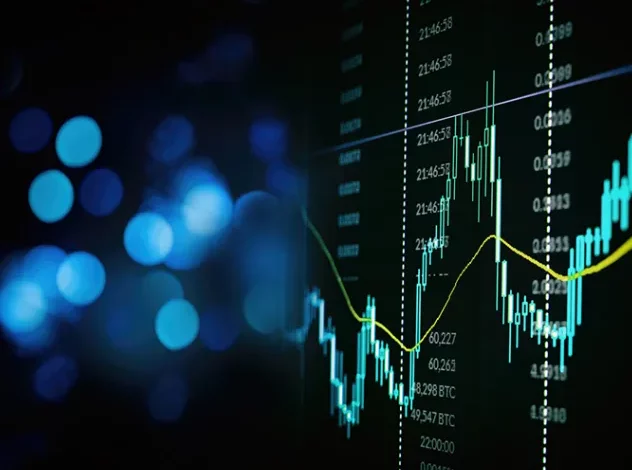Global Macro ETF Trading: Navigating Intermarket Relationships and Geopolitical Trends

For investors trading global macro exchange-traded funds (ETFs), navigating the complex relationships between different markets and anticipating how geopolitical events may impact those relationships is a constant challenge. Understanding the links between rising U.S. bond yields and weakness in emerging market currencies, deciphering the impact of Brexit on European equities, and assessing the economic fallout from trade conflicts between the U.S. and its major trading partners are crucial for portfolio performance. Macroeconomic forces constantly interact across borders, with implications that must be carefully considered.
In this article, we aim to discuss some of the critical Intermarket relationships global macro ETF investors need to be aware of currently and analyse significant geopolitical trends that influence these connections and could present new opportunities or risks. We will also provide insights on effectively managing these relationships and trends while building a successful global macro ETF trading strategy.
Intermarket Relationships in Global Macro Trading
Global macro trading involves taking positions in various asset classes, including equities, bonds, currencies, commodities, and derivatives. These different markets are interconnected, and their performance is closely related. For example, rising bond yields in the U.S. could lead to a decrease in equity prices, while falling oil prices may have a positive impact on global consumer spending. Therefore, understanding and anticipating these relationships is crucial for a successful global macro trading strategy.
One of the most significant intermarket relationships that global macro traders need to consider is the connection between U.S. bond yields and emerging market currency weakness. As U.S. interest rates rise, investors shift their investments from emerging markets to the U.S., seeking higher returns and a safer haven for their capital. This can lead to a decrease in demand for emerging market currencies, causing them to weaken against the U.S. dollar.
Another meaningful relationship is between oil prices and global consumer spending. As oil prices rise, consumer spending tends to decrease, as consumers have less disposable income to spend on other goods and services. It can significantly impact the performance of global equities and emerging market currencies. ETF trading strategies that consider these relationships and adjust accordingly may have a higher chance of success.
Geopolitical Trends and Their Impact on Global Macro Trading
In addition to intermarket relationships, geopolitical events play a significant role in global macro trading. Political instability, trade conflicts, and other important events can affect various markets and their performance.
One of the most pressing geopolitical trends is Brexit – the United Kingdom’s withdrawal from the European Union. As negotiations continue and the possibility of a no-deal Brexit increases, European equities face increased volatility. This uncertainty has also impacted the British pound, which has weakened against major currencies.
Another significant trend is the ongoing trade tensions between the U.S. and its major trading partners, particularly China. The imposition of tariffs and threats of further escalation have caused market volatility and uncertainty, especially for companies with global supply chains. It has also impacted currency markets, as the Chinese yuan has weakened against the U.S. dollar.
Managing Intermarket Relationships and Geopolitical Trends in Global Macro Trading
Managing a successful global macro trading strategy can be challenging with multiple Intermarket relationships and geopolitical trends. However, investors can follow some fundamental principles to navigate this complex landscape.
First and foremost, staying informed and aware of global macroeconomic developments and their potential impact on different markets is essential. It includes closely monitoring economic data releases, central bank policies, and geopolitical events. Staying ahead of significant market movements can help investors make well-informed trading decisions.
Additionally, diversification is key. Investing in various asset classes and regions can mitigate risks and take advantage of diverging performance across markets. It also includes using tools such as currency hedging to manage exposure to foreign currencies.
Lastly, having a clearly defined risk management strategy is crucial in global macro trading. With the potential for significant market volatility, it is essential to have a plan in place to manage and mitigate risk. This can include setting stop-loss orders, diversifying within asset classes, and closely monitoring portfolio performance.
Benefits of Understanding Intermarket Relationships and Geopolitical Trends in Global Macro Trading
Understanding intermarket relationships and geopolitical trends is not simply about reducing risks—it can also open up new avenues for potential returns. For global macro ETF traders, these insights can lead to identifying asymmetric trade opportunities where the potential upside outweighs the downside risk. Traders can pinpoint advantageous entry and exit points by methodically analysing the lead and lag effects between different asset classes.
Commodities, for instance, can offer clues about future inflation expectations and, in turn, influence central bank actions and bond prices. Furthermore, being attuned to geopolitical shifts allows traders to anticipate market sentiment changes and adjust their strategies, often ahead of the broader market.
